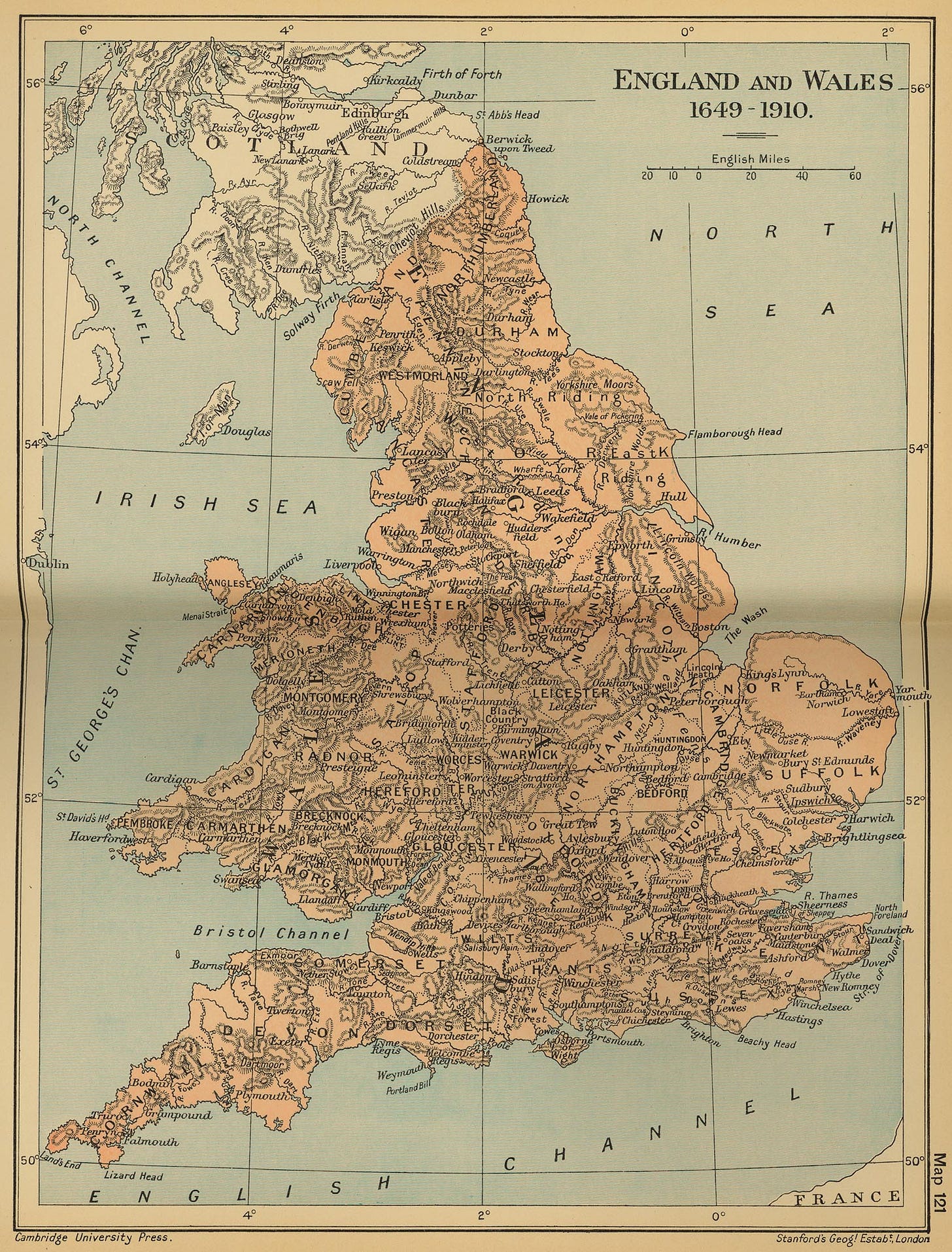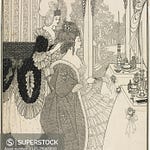In the summer of 1984, I was one of the staff at a small Catholic Worker house in Washington, D. C., and since I was young and energetic and I had no car, I actually got to know much of the city pretty well, the best way you can, by walking. Washington, as you may know, was laid out by a Frenchman, Pierre Charles L’Enfant, with mostly numbered streets going north-south and mostly lettered streets going east-west, and streets named for American states running diagonally at all kinds of angles. “It’s perfectly logical,” said John, my boss, “and that’s why it drives me nuts.” The best thing you can say about such roads is that you can’t possibly get lost. The worst thing can you say about them is — the same, that you can’t possibly get lost!
In our Poem of the Week, that bluff and hearty Englishman, G. K. Chesterton, celebrates a truly English road, which goes anywhere, just as a truly English garden seems to have grown up wild, not confined to what Milton calls, disparagingly, “beds and curious knots.” Chesterton wrote it as a sortie in his crusade against proposed laws to prohibit drinking ale and beer. He said, shrewdly, that the upper classes, who were by no means going to give up their drinks, wanted to “reform” the working classes by stealing from them one of the few pleasures left to them in their daily lives. Of course, there was a lot to say on the temperance side. I have a photo of a parade in my home town in Pennsylvania, held in the middle of November, 1918, to celebrate the end of World War I; leading the parade is the pastor, Father Comerford, and not far behind him are the Knights of Father Mathew, an Irish-Catholic temperance society. Those men were coal miners, and you sure must lose a lot of water in sweat, and get really thirsty, when you swing a pickax for eight or nine hours in the day.
So Chesterton’s ideal and quite imaginary English road is crooked and crazy, as are he and his friend in their youth when they travel upon it. It’s a road not flattened and paved, such as the Romans brought to ancient Britain, but tramped out by a drunken Englishman. To travel on it right, you have to be heightened beyond the humdrum; it’s not practical, but that’s the whole beauty of it. That’s why, at the end of each stanza till the last, Chesterton recalls the days of their youth, when they did geographically madcap things, like going to Glastonbury — far out west toward Cornwall, where King Arthur was supposed to have been buried, and the Holy Grail last seen — by way of Goodwin Sands, the treacherous easternmost point of southern England, on the Straits of Dover. That’s to take things by latitude — I guess it would be G Street, if L’Enfant had its naming! Or it’s like going to Bannockburn — far into Scotland, where Robert the Bruce smashed the armies of Edward II in 1314 and won a long period of Scottish independence — by way of Brighton Pier, on the English Channel, facing France.
Now, Chesterton isn’t recommending drunkenness. It is hard to imagine a man less enslaved to pleasures of the flesh than he was. But he reveled in what was not predictable, not standardized, not homogenized, not global; rather in what was sprightly, unique, peculiar, and homely; in the poet Hopkins’ words, “All things counter, original, spare, strange, / Whatever is fickle, freckled, who knows how?” Youth in particular is the time for dash and pluck, for the romance of the road — no GPS system, but the freedom of saying, “Let’s go and see where it takes us!” There’s a spiritual virtue in that freedom. It is open-hearted and celebratory. It is warm and generous. It is fun.
But Chesterton saves the big surprise for last. In each of the first three stanzas, we’re going to places you can find on a map, but in an odd and merry way, as if somebody said, “Let’s go to Arizona by way of Atlantic City!” And Chesterton alliterates on each pair of places, too, to heighten the merriment. But in the last stanza, we’re making the most madcap journey of all. We’re going to Paradise from Kensal Green — and that leaves latitude and longitude far behind. It’s nothing less than motion from earth to heaven. Kensal Green, in Chesterton’s time, was known for two things. First, it was one of the places in England where immigrants from Ireland came after the potato famine, and, being Irish, they brought their Irish ways with them, which Chesterton seems to have enjoyed. Imagine a bustling, working class corner of London, not the result of central planning, where sheep might graze within sight of a new athletic stadium and the railroad station. Second, it was the site of Kensal Green Cemetery, where quite a few of the English greats in royalty, arts and letters, and business are buried. Imagine getting to Paradise from there! Well — the God who can lay a table in the wilderness can clear the road from Kensal Green to his presence. And why not?
Before the Roman came to Rye or out to Severn strode, The rolling English drunkard made the rolling English road. A reeling road, a rolling road, that rambles round the shire, And after him the parson ran, the sexton and the squire; A merry road, a mazy road, and such as we did tread The night we went to Birmingham by way of Beachy Head. I knew no harm of Bonaparte and plenty of the Squire, And for to fight the Frenchman I did not much desire; But I did bash their baggonets because they came arrayed To straighten out the crooked road an English drunkard made, Where you and I went down the lane with ale-mugs in our hands, The night we went to Glastonbury by way of Goodwin Sands. His sins they were forgiven him; or why do flowers run Behind him; and the hedges all strengthening in the sun? The wild thing went from left to right and knew not which was which, But the wild rose was above him when they found him in the ditch. God pardon us, nor harden us; we did not see so clear The night we went to Bannockburn by way of Brighton Pier. My friends, we will not go again or ape an ancient rage, Or stretch the folly of our youth to be the shame of age, But walk with clearer eyes and ears this path that wandereth, And see undrugged in evening light the decent inn of death; For there is good news yet to hear and fine things to be seen, Before we go to Paradise by way of Kensal Green.
Listen to this episode with a 7-day free trial
Subscribe to Word & Song by Anthony Esolen to listen to this post and get 7 days of free access to the full post archives.













